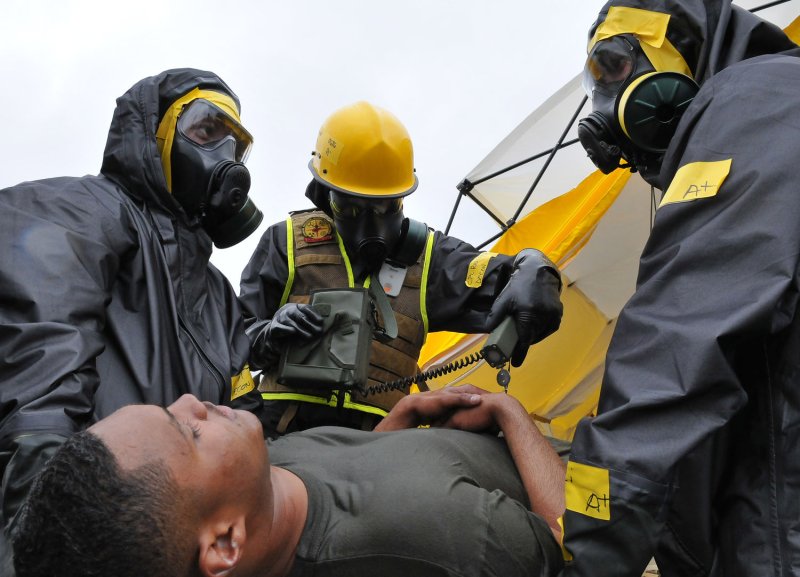Member of U.S. Marines "CBIRF" (Chemical Biological Incident Response Force) checks degree of contamination during a exercise at the Yokota Air Base in Tokyo, Japan, on April 9, 2011. UPI/Keizo Mori |
License Photo
WASHINGTON, July 14 (UPI) -- The U.S. Department of Homeland Security says it will spend more than $300 million on radiation detection equipment some experts say might not work.
The equipment hasn't been fully tested and might not work as advertised, the National Academy of Sciences said in a Washington Post report.
The George W. Bush administration touted the equipment as an advanced way to protect against the importation of radioactive materials that could be used in a nuclear or so-called dirty bomb.
In January, the NAS released a report saying there is no way to know if the radiation detectors, known as ASPs, worked as promised.
The NAS said in promoting the machines to Congress, Homeland Security's Nuclear Detection Office presented findings in ways that are incorrect and potentially misleading.
That report followed an earlier government decision to abandon plans to use ASPs as primary screening devices at ports and borders because of such questions.
"The bottom line is that the ASP program has cost the department five years in the race to strengthen the nation's domestic defenses against nuclear terrorism," said Sen. Joseph Lieberman, Ind-Conn., chairman of the Senate Homeland Security and Governmental Affairs Committee.
"At this point, it is critical that the department begin working on a plan B for accelerating improvement in the performance of current generation radiation portal monitors," Lieberman said.
The nuclear detection office said it plans to buy as many as 400 ASPs by 2016, even though it hasn't fulfilled internal requirements to conduct an unbiased review of the results of previous ASP testing before buying the equipment, a Government Accountability Office report said.















